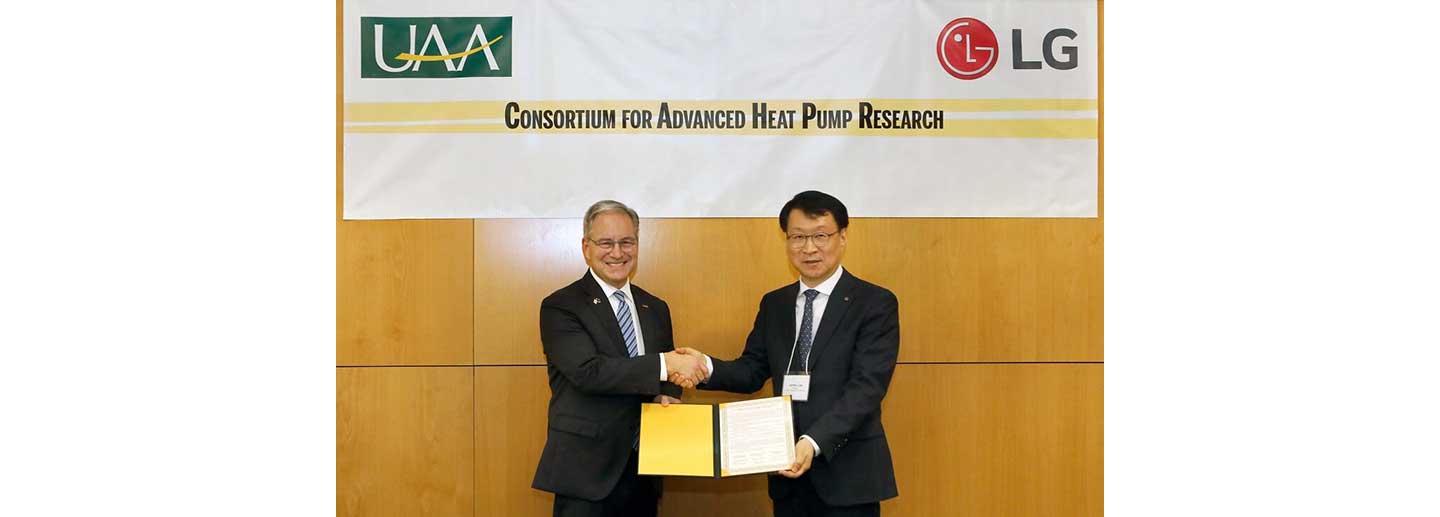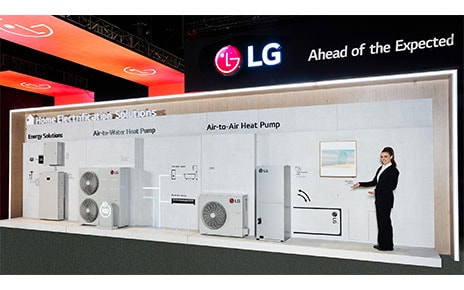We use cookies, including cookies from third parties, to enhance your user experience and the effectiveness of our marketing activities. These cookies are performance, analytics and advertising cookies, please see our Privacy and Cookie policy for further information. If you agree to all of our cookies select “Accept all” or select “Cookie Settings” to see which cookies we use and choose which ones you would like to accept.
LG Establishes Consortium for Advanced Heat Pump Research in Alaska
Consortium to Advance Research, Enhance Operational Capabilities of Heat Pumps in
Extreme Climates and Boost Long-Term Competitiveness of LG’s HVAC Solutions

SEOUL, Nov. 7, 2023 — LG Electronics (LG) is establishing a research facility in Alaska, USA, to accelerate its research and development efforts in the field of heating, ventilation and air conditioning (HVAC). The new research lab comes under the newly formed Consortium for Advanced Heat Pump Research (CAHR), a collaboration between LG and local universities. The company anticipates the joint effort will enhance the competitiveness of its HVAC products through delivering groundbreaking innovations in ‘cold climate’ technology.
LG will operate the state-of-the-art facility in conjunction with the College of Engineering at the University of Alaska Anchorage (UAA) and the University of Alaska Fairbanks’ highly regarded HVAC Lab.
Improving the heating performance of heat pumps operating in regions with very low temperatures – such as Alaska – is a challenge due to the reduction in refrigerant circulation caused by the cold. LG recognizes the need to develop and validate products in extreme cold conditions, which led it to establish the research lab in Alaska. The jointly-run lab will facilitate the collection of operational data at low-temperatures, hastening the development of solutions that can reliably produce top-tier performance in the harshest climatic conditions.
The CAHR aims to foster HVAC innovation through undertaking specialized R&D, providing access to key resources, and creating a culture centered on learning and problem-solving. LG will conduct research in two dedicated facilities: a university-owned building on the Anchorage campus and a site in Fairbanks, Alaska, that will be constructed like a real-world home. The Fairbanks facility will be equipped with a diverse range of sophisticated LG HVAC solutions, including ducted and duct-free indoor and outdoor units as well as the company’s revolutionary Inverter Heat Pump Water Heater.
LG and its university partners will oversee a variety of tests designed to assess performance under various environmental conditions, such as snow, rain and extremely low temperatures, and by introducing different variables that have not previously been considered in testing heat pump efficacy. LG believes that the results of the research will contribute to better product heating performance, quality and reliability.
“Collaboration in research is the cornerstone of UAA’s mission, and our partnership with LG advances climate solutions in the HVAC industry and beyond,” said Sean Parnell, chancellor of University of Alaska Anchorage. “UAA is proud to lead this collaboration with LG to further innovation across industry and our communities.”
“For LG, the ultimate goal of creating the Consortium for Advanced Heat Pump Research is to lead the global heat pump industry and provide a differentiated customer experience,” said James Lee, head of the Air Solution Business Unit at LG Electronics Home Appliance & Air Solution Company. “LG will raise the industry bar and push the limits of existing heat pump technology, developing solutions that deliver peak performance irrespective of environmental conditions.”
The Alaska research lab is expected to help LG make significant strides in both the North American and European HVAC market, enabling it to further strengthen its core technologies and first-class solutions, such as inverters and heat pumps, and boost overall product competitiveness. The company is also confident that the R&D efforts soon to be initiated under the CAHR will help shape the future of the HVAC industry.


